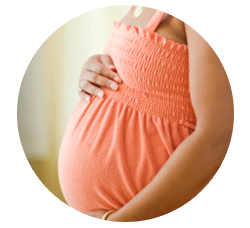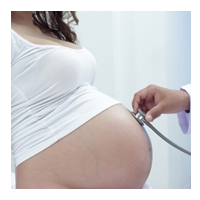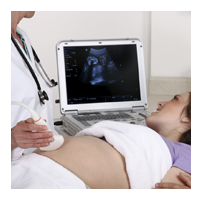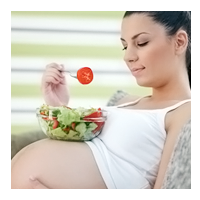Women should be fully involved in decisions about their care and treatment in pregnancy and therefore need to be given the knowledge to make informed decisions. Where appropriate, a woman's partner and family should be involved and informed and their views and values respected. Good communication is crucial at every step in pregnancy. |
| |
| |
What is antenatal care? |
| |
Antenatal care is the care you receive from healthcare professionals during your pregnancy. You'll be offered a series of appointments with a midwife, or sometimes with a doctor who specializes in pregnancy and birth (an obstetrician). |
| |
They will check that you and your baby are well, give you useful information to help you have a healthy pregnancy (including healthy eating and exercise advice) and answer any questions you may have. |
| |
You will also be offered antenatal classes, including breastfeeding workshops. You need to book antenatal classes in advance, so ask your midwife about when you should book classes in your area. |
|
| |
Antenatal appointments will be set up for you – they’re spaced out through your pregnancy. At these appointments, the team looking after you will: |
| |
- check your health and the wellbeing of your baby
- watch out for any problems so you can get support early
- give you and your baby any special treatment you need
- give you information about how to look after your health and your baby's
- answer any questions you have
- help you plan your baby's birth
- put you in touch with any other support you may need.
|
 |
|
The first appointment is known as the ‘booking appointment’. This usually happens between 8 and 12 weeks of your pregnancy. |
| |
| |
General Principles |
| |
Care should be centred on the pregnant woman; the aim should be to keep her fully informed on the progress of her pregnancy and to provide her with evidence-based information and support to make informed decisions. |
| |
At first contact with a health professional, she should be given: |
| |
- Information on where antenatal care will be offered and by whom, including choice of providers where available and information about antenatal screening.
- Information about folic acid supplementation.
- Lifestyle advice including:
|
|
- Food hygiene and safe eating in pregnancy.
- Smoking cessation.
- Advice about avoidance of alcohol and illicit drugs in pregnancy.
|
|
- Medication advice (review of safety of any current medication in pregnancy and avoidance of over-the-counter (OTC) medication which may not be used in pregnancy).
|
|
|
 |
|
| |
At booking, she should be given: |
| |
- Information about the development of the baby during pregnancy.
- The choice of attending antenatal classes.
- Written information about antenatal care - for example, the book "The Pregnancy Book" available from Health Departments. Patients with loss of sight or hearing, learning difficulties or poor comprehension of English should have the information provided in a way that is understandable to them.
- Advice about exercise.
- Information and choice regarding the place of birth.
- Information regarding nutrition and diet.
- Information about breast-feeding.
- Further explanation of antenatal screening.
- The opportunity to discuss any mental health issues.
|
|
 |
|
| |
| |
| |
Before or at 36 weeks, she should be given: |
| |
- Information about breast-feeding.
- Information to prepare her for labour and birth (birth plan, pain relief options, how to recognise the onset of active labour).
- Information about care of the new baby and preparations needed.
- Information about routine procedures such as newborn screening and vitamin K prophylaxis.
- Advice about postnatal self-care, along with information about postnatal depression and "baby blues".
|
|
| |
At 38 weeks, she should be given: |
| |
- Information about management options for prolonged pregnancy.
|
|
| |
| |
Advice: Nutrition |
| |
|
| |
Pregnant women should be encouraged to have a normal, balanced, healthy diet. Because of the dangers of toxoplasmosis and listeriosis, women should avoid: |
 |
| |
- Uncooked meat or fish.
- Raw or partially cooked eggs, and products such as fresh mayonnaise which may contain raw eggs.
- Milk that has not been pasteurised.
- Soft cheeses which are mould-ripened or made from unpasteurised milk, such as Brie and Camembert, or soft blue-veined cheeses such as Danish Blue.
- More than two portions per week of oily fish.
- Fruit or vegetables.
|
|
| |
Vegetarians, and especially vegans, may be at risk of nutritional deficiencies and may need to be referred to a dietician for advice about obtaining all nutrients through diet. |
| |
Women should be cautioned to avoid many herbal preparations and teas; their use and safety in pregnancy have not been studied. |
| |